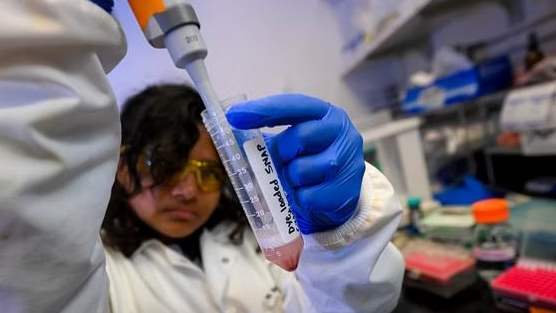Smart contact lens keeps an eye on your eyes—even when they’re closed

University of Electronic Science and Technology of China develops lens monitoring eye health with wireless, real-time data.
Koalas set to benefit from new genetic screening tool

University of Queensland researchers develop tool to improve koala genetic diversity, aiding conservation of endangered populations.
Study reveals why birds sing more at dawn in tropical forests

Cornell University researchers find territorial behaviour and omnivorous diets drive increased dawn singing among tropical birds.
Even bumble bee queens need personal days, too

UC Riverside study finds queens pause egg-laying to conserve energy, ensuring colony survival during vulnerable early days.
Locations of treats are stored in specialized neural maps

Stanford University researchers find adaptable neural maps in mice, revealing insights into dementia and addiction behaviours.
Bed bugs are most likely the first human pest, 60,000 years and counting

Virginia Tech researchers reveal bed bugs’ evolutionary link to humans, tracing origins back to Neanderthal era.
New larvae-attracting gel could boost coral reef restoration

UC San Diego researchers develop nanoparticle gel that enhances coral larvae settlement, potentially reversing reef decline.
30 percent weight loss in mice by restricting one amino acid

NYU Grossman School of Medicine researchers discover cysteine depletion through diet and genetic engineering triggers rapid fat loss.
New find: Chimpanzees are capable of complex communication

Max Planck Institute researchers uncover chimpanzees combining different calls to create new meanings, similar to humans.
Street smarts: how a hawk learned to use traffic signals to hunt more successfully

Researchers at the University of Tennessee discover a young hawk using vehicle queues on particular signal phases to surprise prey.
